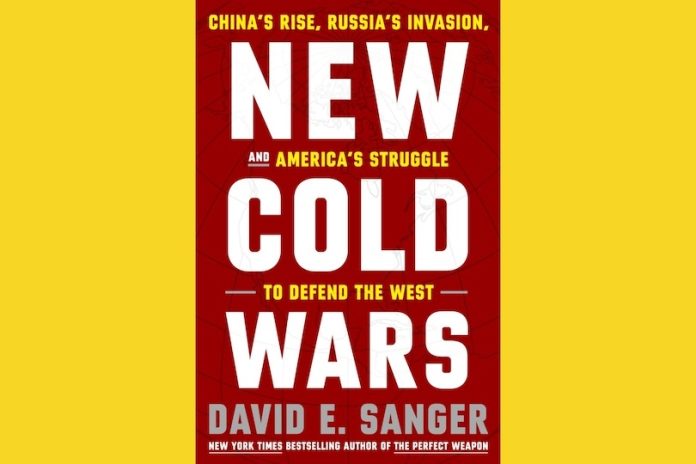New Cold Wars: China’s Rise, Russia’s Invasion, and America’s Struggle to Defend the West
By David Sanger
Penguin Random House, 2024
David Sanger’s latest book explores the evolving challenges to U.S. foreign policy, viewing current tensions with China and Russia through the lens of Cold War dynamics. Despite Sanger’s expertise and insight, his use of the Cold War analogy oversimplifies the complexities of today’s global landscape.
In New Cold Wars, Sanger aligns with scholars like Hal Brands and Niall Ferguson, suggesting that U.S. foreign policy should draw from Cold War frameworks to address China’s growing influence and Russia’s aggressive actions. Sanger draws parallels between the past Cold War and current geopolitical climate, highlighting familiar themes like nationalism, proxy wars, and nuclear proliferation.
Sanger argues that the U.S. is embroiled in a new kind of Cold War, marked by a multifaceted global rivalry that poses significant challenges to American power. However, the nature of alliances today differs greatly from the Cold War era, with alliances driven more by practical interests than ideological commitments.
While Sanger’s book offers valuable insights into U.S. foreign relations, it fails to fully capture the complexities of modern geopolitics. The emphasis on traditional military and geopolitical contests overlooks the growing importance of economic and technological competition in today’s world.
Despite its limitations, Sanger’s book presents practical policy recommendations for addressing current challenges, such as strengthening alliances, investing in cybersecurity, and avoiding unnecessary conflicts with China. These recommendations are grounded in practical concerns and do not rely solely on Cold War analogies.
Overall, while New Cold Wars provides important insights, its reliance on Cold War frameworks may not fully account for the multi-dimensional power struggles defining the 21st century. A more nuanced framework will be essential for policymakers and scholars to navigate the complexities of today’s international system.




